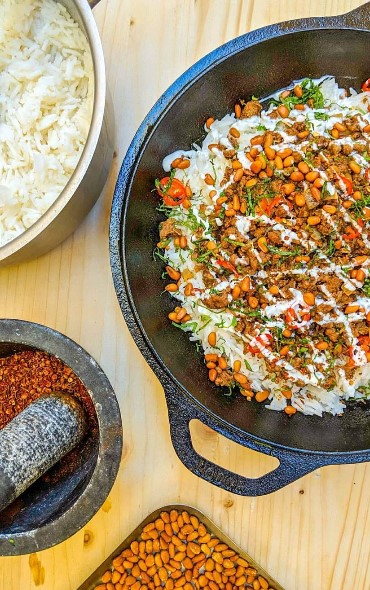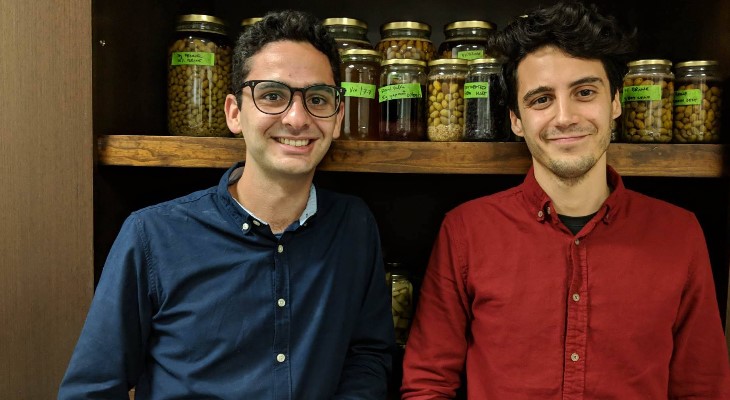Take a day out of your holiday to follow a course about regional cuisine with the Mediterranean Culinary Academy.
Malta’s chequered history, with its waves of different colonisers, has left the island with an eclectic gastronomic heritage reflecting the diversity of the Mediterranean basin.
Italian pasta dishes sit happily on our dining table next to North African influenced mezze, alongside sweet pastries originally introduced by the Arabs, washed down with an English cup of tea. At Christmas, you’ll find us tucking into a British-style roast turkey with all the trimmings, preceded by a hearty lasagne or timpana (baked pasta topped with pastry) and followed by English pudding or Italian panettone.
Over the centuries we have learnt to adopt and adapt the recipes of all those who have crossed our rocky shores and made them very much our own. You must have already been told to try the pastizzi when in Malta. Well, if you’ve been to Naples, you’ll quickly notice the similarities with their sweet sfogliatelle. Only, ours are uniquely savoury.

Mediterranean Culinary Academy
The newly established Mediterranean Culinary Academy is striving to put all this gastro-tradition into context while tying it in with an understanding and appreciation for sustainable local and seasonal produce. The first educational establishment of its kind anywhere in the region, the academy aims to be the first product-driven food institution in the world placing the food cycle at the core of all its courses.
“The story of Maltese cuisine is a complicated one,” explains Michael Camilleri, one of the chef-instructors at the academy. “It is a combination of geography, history and social structure. It has altered a lot through colonialism. There is a Maltese culinary tradition, but you have to look at it in the context of the whole Mediterranean culinary tradition. It is a very humble cuisine reflecting a simple, peasant’s life: one nutritious pot mostly filled with vegetables and cheap cuts of meat such as offal.”
A culinary scientist who has worked with Michelin-starred chefs Dominique Crenn in San Francisco and Heston Blumenthal in the UK, Michael is passionate about indigenous, seasonal produce.
The MCA is working in collaboration with the National Agricultural Research and Development Centre at Ghammieri to reintroduce some heritage crops and endemic animals that had almost been lost to time.
Once a key producer of olive oil for the Roman empire, Malta is slowly rediscovering this tradition, and small-scale production of excellent olive oil from locally grown olives is gaining ground. What few know is that Malta also produces an indigenous white olive which is delicious to eat as a snack.

Mediterranean Culinary Academy
The island has its own endemic chicken, which is black and produces fatty, juicy leg meat but no breast meat. The academy receives a weekly consignment of local goat milk and is experimenting with heritage varieties of carrots which are peppery in taste and different types of beans including the unique ful tal-girba, which is used in Maltese bean paste bigilla. They also work with a network of farmers who supply all the ingredients used in the academy’s courses.
Sustainability of agricultural practices is at the heart of the academy’s values. “We need to invest in local producers,” insists Kurt Mifsud, the academy’s CEO. “We must support them both as customers and as restauranteurs. As chefs we are more inspired by fresh, local ingredients than produce which has travelled thousands of miles.”
This revival in local produce is the answer to sustaining a local culinary tradition. However, as Michael points out, rather than looking back, “in order for Maltese cuisine to survive, it has to modernise while staying true to its roots. For example the carob. Why not make it into a soft drink? Use it in a product that would be consumed by today’s generation.”

Mediterranean Culinary Academy
If you'd like to learn more about cuisines from across the Mediterranean, sign up to a one-day workshop by the Mediterranean Culinary Academy held in their teaching kitchen in Valletta. No kitchen experience necessary, just a love for all things food.